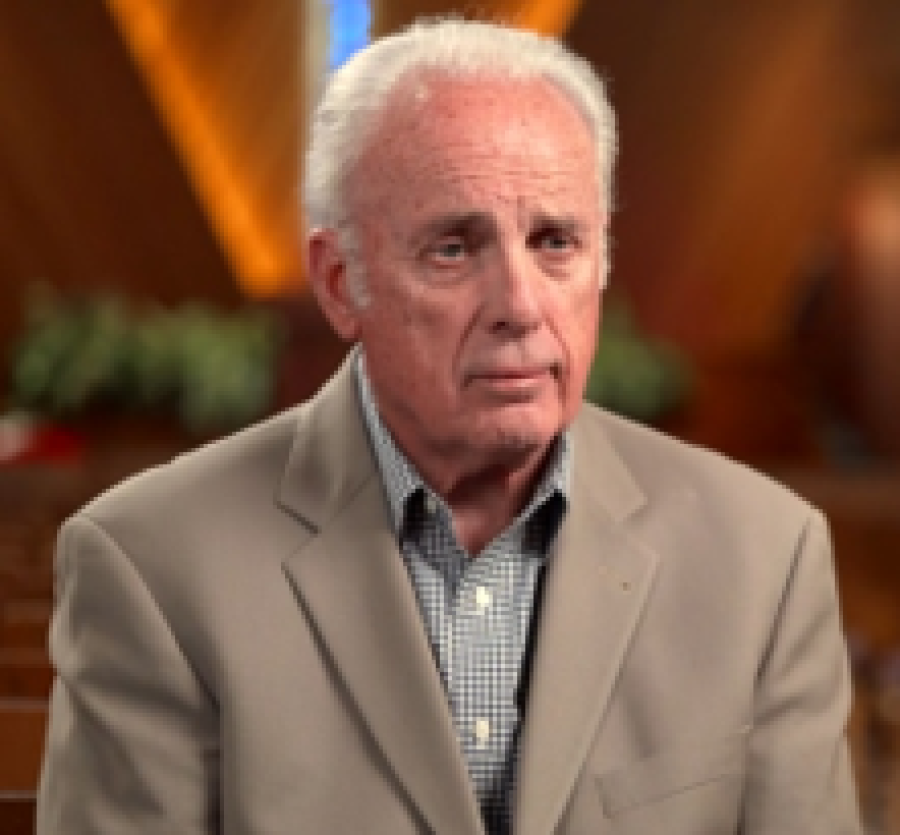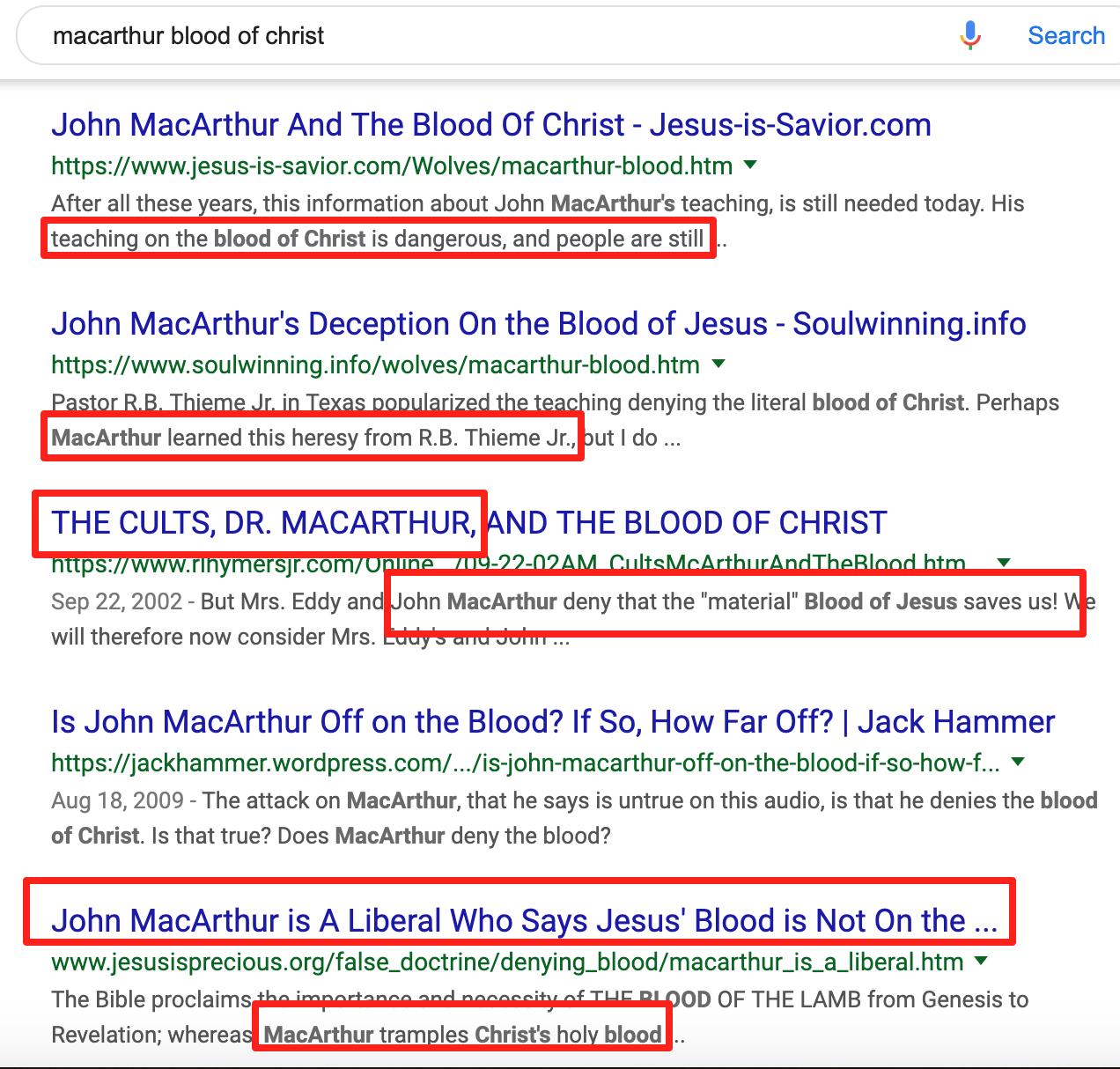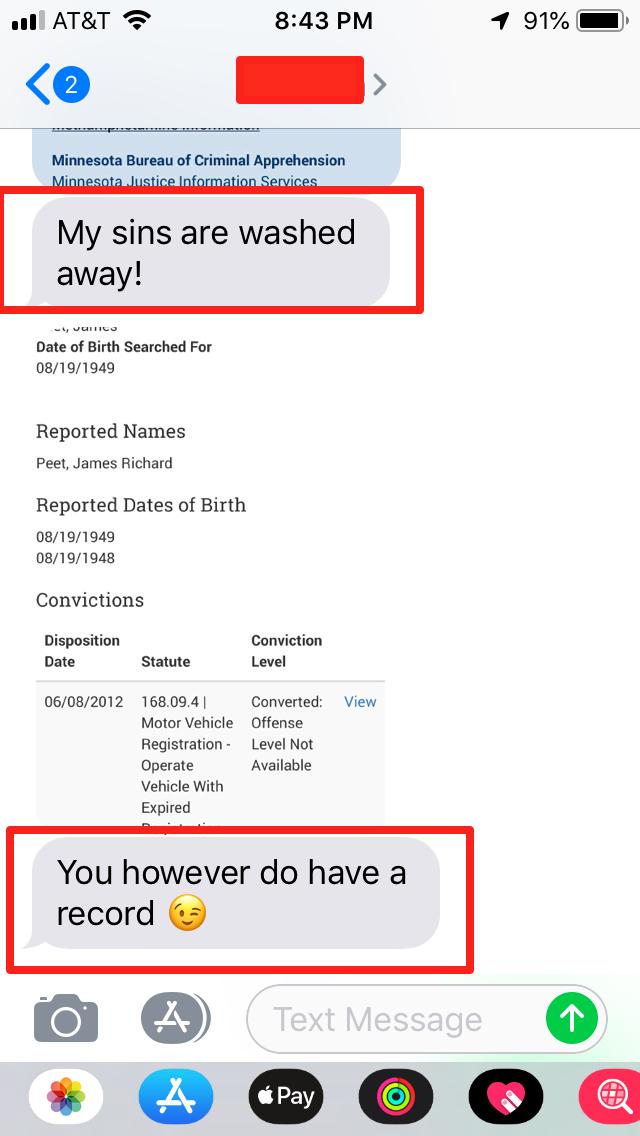MacArthur and "the Blood" Controversy
Image

The “blood controversy” involving John MacArthur and Bob Jones, Jr. is infamous within Baptist fundamentalism. It is a sad event. Even now, there are some fundamentalists who wrongly believe MacArthur is a “heretic” because of this unfortunate slander from Jones. Phil Johnson wrote a letter clarifying the issue 19 years ago, and explained:1
The controversy was originally ignited by a supposed “news” item written by Bob Jones, Jr. in the April 1986 issue of Faith For The Family (a Bob Jones University-sponsored magazine). Jones quoted some remarks MacArthur had originally made in a live Q&A session at Grace Community Church sometime in the early 1970s. MacArthur’s comments had been transcribed and published in the May 1976 issue of the Grace Church newsletter “Grace Today.” The Jones article cited the comments without any documentation, and without noting that they were from a ten-year-old source.
In the BJU article, Jones quoted MacArthur as saying, “It is not His bleeding that saved me, but His dying.” Jones then cited Hebrews 9:22 (“without shedding of blood is no remission”) and intoned, “MacArthur’s position is heresy.”
Johnson continued:2
After an exchange of correspondence in which MacArthur thoroughly and carefully explained his original remarks, Jones wrote on October 16, 1986, saying, “I believe the position [MacArthur] has taken in this matter is a heretical position, and all the correspondence in the world is not going to affect my convictions on that point.”
Nonetheless, BJU officials soon began trying to downplay the controversy. They were clearly embarrassed by some of the squalid half-truths that were beginning to circulate among fundamentalists. They also now had a file of correspondence from MacArthur clarifying his position, making it clear that he was orthodox. Even Jones, Jr. declined to give any rational or biblical reasons for continuing to regard MacArthur’s view as “heresy.” But he was obstinately committed to his original verdict, and by his own admission, “all the correspondence in the world [was] not going to affect” his thoughts or public statements on the matter. Instead, BJU as an institution attempted a quiet retreat from the fray.
But as Procter & Gamble will testify, once rumors like this get into the fundamentalist rumor mill, they sometimes circulate and spawn more and more fanciful rumors for years, no matter how much the truth is broadcast. In this instance, the rumors became inbred and increasingly sinister. Various fundamentalist scandal-sheets passed the tale around for several more years, keeping it alive and reviving it with a new twist every time it nearly died.
MacArthur finally wrote a letter to his church in 1988 explaining his position, in an effort to set the record straight:3
Dear Beloved Friend,
The blood of the Lord Jesus Christ is holy and precious. The shedding of His blood in death was the price of atonement for our sins. As He literally poured out His blood in a sacrificial act, He sealed forever the New Covenant and purchased our redemption.
Those of you familiar with my teaching know that I have always believed and affirmed those things. For the past two or three years, however, I have been under attack by a small but vocal group of men who are eager to discredit my ministry. They have charged me with denying the blood of Christ and have called me a heretic in several nationally distributed publications.
My first response was to write many of those men privately, believing their attack on me grew from a misunderstanding. None of them had spoken to me personally before attacking me in print. Only a handful have yet replied to my letters. Still, I expected the public controversy to die away. My teaching is certainly no secret, and I knew that those who listen regularly to our radio broadcast would know I am a not teaching heresy.
Nevertheless, for nearly three years a small core of zealots have kept the issue swirling around every ministry I’m involved with. One man has literally made a career of going to any church in the country that will pay his way and giving a series of messages on the error of “MacArthurism.” Recently, a couple of key radio stations dropped “Grace to You,” not because of anything we taught on the broadcast, but because they did not want to continue to deal with the controversy being generated by rumormongers.
Over the past couple of years we have received thousands of letters from all over the country, ranging from those supporting our biblical view, to those who are confused, to some who blindly echo the accusation that we are trampling underfoot the blood of Christ. For the sake of all of them, and so that you can better understand what I have taught about the blood of Christ, let’s look at three truths that I and all other genuine believers affirm about the blood of Jesus Christ.
1. Jesus’ Blood Is the Basis of Redemption
Peter wrote, “Ye were not redeemed with corruptible things, [like] silver and gold …but with the precious blood of Christ” (1 Pet. 1:18-19, KJV). Scripture speaks of the blood of Christ nearly three times as often as it mentions the cross, and five times more often than it refers to the death of Christ. The word blood, therefore, is the chief term the New Testament uses to refer to the atonement.
Peter wrote that election is “unto obedience and sprinkling of the blood of Jesus Christ” (1 Pet. 1:2). The “sprinkling of the blood” was what sealed the New Covenant (cf. Heb. 9:1-18). “Without shedding of blood is no remission” (v. 22). If Christ had not literally shed His blood in sacrifice for our sins, we could not have been saved. This is one reason crucifixion was the means God ordained by which Christ should die: it was the most vivid, visible display of life being poured out as the price for sins.
Bloodshed was likewise God’s design for nearly all Old Testament sacrifices. They were bled to death rather than clubbed, strangled, suffocated, or burnt. God designed that sacrificial death was to occur with blood loss, because “the life of the flesh is in the blood” (Lev. 17:11).
2. Jesus Shed His Literal Blood When He Died
The literal blood of Christ was violently shed at the crucifixion. Those who deny this truth or try to spiritualize the death of Christ are guilty of corrupting the gospel message. Jesus Christ bled and died in the fullest literal sense, and when He rose from the dead, he was literally resurrected. To deny the absolute reality of those truths is to nullify them (cf. 1 Cor. 15:14-17).
The meaning of the crucifixion, however, is not fully expressed in the bleeding alone. There was nothing supernatural in Jesus’ blood that sanctified those it touched. Those who flogged Him might have been spattered with blood. Yet that literal application of Jesus’ blood did nothing to purge their sins.
Had our Lord bled without dying, redemption would not have been accomplished. If the atonement had been stopped before the full wages of sin had been satisfied, Jesus’ bloodshed would have been to no avail.
It is important to note also that though Christ shed His blood, Scripture does not say He bled to death; it teaches rather that He voluntarily yielded up His spirit (John 10:18). Yet even that physical death could not have bought redemption apart from His spiritual death, whereby He was separated from the Father (cf. Mat. 27:46).
3. Not Every Reference to Jesus’ Blood Is Literal
Clearly, though Christ shed His literal blood, many references to the blood are not intended to be taken in the literal sense. A strictly literal interpretation cannot, for example, explain such passages as John 6:53-54: “Truly, truly, I say to you, unless you eat the flesh of the Son of Man and drink His blood, you have no life in yourselves. He who eats My flesh and drinks My blood has eternal life, and I will raise him up on the last day.”
It would be equally hard to explain how physical blood is meant in Matthew 27:25 (“His blood be on us, and on our children”); Acts 5:28 (“[You] intend to bring this man’s blood upon us”); 18:6 (“Your blood be upon your own heads”); 20:26 (“I am innocent of the blood of all men”); and 1 Corinthians 10:16 (“The cup of blessing …is it not the communion of the blood of Christ?,” KJV).
Clearly the word blood is often used to mean more than the literal red fluid. Thus it is that when Scripture speaks of the blood of Christ, it usually means much more than just the red and white corpuscles—it encompasses His death, the sacrifice for our sins, and all that is involved in the atonement.
Trying to make literal every reference to Christ’s blood can lead to serious error. The Catholic doctrine known as transubstantiation, for example, teaches that communion wine is miraculously changed into the actual blood of Christ, and that those who partake of the elements in the mass literally fulfill the words of Jesus in John 6:54: “He who eats My flesh and drinks My blood has eternal life, and I will raise him up on the last day.”
Those who have attacked me seem to be espousing the same kind of mystical view of the blood that led the Catholic Church to embrace transubstantiation. They claim that the blood of Christ was never truly human. They insist on literalizing every New Testament reference to Jesus’ blood. They teach that the physical blood of Christ was somehow preserved after the crucifixion and carried to heaven, where it is now literally applied to the soul of each Christian at salvation.
We are not saved by some mystical heavenly application of Jesus’ literal blood. Nothing in Scripture indicates that the literal blood of Christ is preserved in heaven and applied to individual believers. When Scripture says we’re redeemed by the blood (1 Pet. 1:18-19), it is not speaking of a bowl of blood in heaven. It means we’re saved by Christ’s sacrificial death.
In the same way, when Paul said he gloried in the cross (Gal. 6:14), he did not mean the literal wooden beams; he was speaking of all the elements of redeeming truth. Just as the cross is an expression that includes all of Christ’s atoning work, so is the blood. It is not the actual liquid that cleanses us from our sins, but the work of redemption Christ accomplished in pouring it out.
That is not heresy; it is basic biblical truth.
If you’ve been troubled by these issues and you’d like to study them more in depth, please write to us. We’ll send you free of charge a cassette tape containing virtually everything I’ve ever said about the blood of Christ. We’ve compiled this tape from nearly twenty years of messages given at Grace Community Church. We also have some written material that explains our position, which we will send you again at no charge.
I hope you’ll be like the noble Bereans and study God’s Word for yourself to see if these things are true. Please don’t be influenced by careless charges of heresy.
Also, please pray for me. These attacks have been relentless, and I confess that at times it is discouraging. Yet I know one cannot be on the front lines without constant battles, and it is a privilege to suffer wrong for the Lord’s sake (cf. 1 Pet. 4:19).
Thank you for your prayers and support. Please pray that God will protect us as we seek to minister His truth with boldness.
Yours in His Service,
John MacArthur; Pastor-Teacher
Notes
1 Philip Johnson, “What’s All the Controversy About John MacArthur and the Blood of Christ? A reply to some lies being perpetrated by fundamentalist zealots.” December 2000. Retrieved from http://www.romans45.org/articles/blood.htm.
2 Ibid.
3 Ibid.
Tyler Robbins 2016 v2
Tyler Robbins is a bi-vocational pastor at Sleater Kinney Road Baptist Church, in Olympia WA. He also works in State government. He blogs as the Eccentric Fundamentalist.
- 2399 views
I graduated from BJU in the mid-90’s. While I would agree that Bob Jones 2 & 3 have done much for the Lord’s kingdom, too often feels out-weighed by the too often unnecessary, silly, and inflammatory things said by 2 & 3 or some of the policies of BJU.
Thankfully Stephen and now Pettit have done much to change the culture of BJU.
He asked me about it
http://coldfusion-guy.blogspot.com/2019/08/the-smear-that-lingers-john-…
Message a brother sent me yesterday
Opposition to MacArthur is a totally human story that highlights our sinful condition. First, MacArthur was promoting Incarnational Sonship for a while. He has since corrected that, but his Hebrews commentary (taken from sermons he preached early in his pastorate… I mean really early) was never updated to change his more mature views. So, in certain aspects, MacArthur’s tendency to “innovate” theologically early on opened the door to criticism of him. Second, over time he developed into a Calvinist soteriologically. If you listen to his early material you can hear that he was not a Calvinist then. It developed over time. Third, he also promotes Lordship Salvation . Fourth, he holds to elder rule ecclesiologically. Taken as a whole, this is enough to make some old-time Baptists sweat. Add in his growing immense popularity and the fundamentalists needed to taint him in some way so that their flock would not start to take on his views. The final straw has always been that MacArthur attended BJU for a year (maybe two), but rejected it to play football. He regularly was written that he found BJU pharisaical. All of this added up to a poison pill. I think it is totally humanly understandable why Bob Jones III despised MacArthur. Was it wrong? Yes. But it was human, and by that I mean sinful. I always figured he never got over MacArthur leaving and then becoming so popular… I just double checked and MacArthur and BJIII are the same age. I think there was some personal jealousy there over MacArthur leaving BJU, but that is simply my opinion as a totally removed observer.
That being said, I knew several BJU alumni pastors who struggled with MacArthur. There was always just enough difference between him and them for there not to be a level of trust and comfort. They could never accept MacArthur, and I totally understand that. I do not see their opposition as wrong per se. They were genuine in their concern, and power had nothing to do with it.
doesn’t even have a theological degree, Jim. BS and MS in speech. So, no commentaries.
"Some things are of that nature as to make one's fancy chuckle, while his heart doth ache." John Bunyan
In August 1986, the World Congress of Fundamentalists made an official declaration on this point. They passed a resolution that
… the precious Blood is incorruptible. It cannot be anything else because of its intrinsic purity … the precious Blood is indestructible. It cannot be anything else because of its permanence. The Blood is eternally preserved in Heaven … the precious Blood is invaluable. It cannot be anything else because of its parentage. It is the blood of God incarnate.
The Congress went on to declare that it
rejects every attempt either to deny the literalness of the Blood or to minimise its efficacy and the necessity of its shedding in Christ’s death on the Cross. Such denial is a dangerous and devilish deception … and [it] calls upon Fundamentalist preachers and God’s saints everywhere to proclaim anew the saving efficacy of the shed Blood of Christ in His death on the Cross, and to alert the Church in regard to all heretical teaching on this vital truth.
"Some things are of that nature as to make one's fancy chuckle, while his heart doth ache." John Bunyan
As an alumnus of BJU, I have always been embarrassed by the Mac Arthur blood controversy. I spoke about it personally to BJ III many years ago, and he agreed with me at the time, but later changed his mind and continued to criticize MacArthur on this issue. It was most unnecessary, unfortunate, and erroneous. However, I would never claim to know the motives of his heart.
There is another factor which is often overlooked. Rev. Ian Paisley, leader of the Free Presbyterians, and a close friend of BJ, Jr., taught that the literal blood of Jesus was lifted from the ground and transported to heaven. His strong, and erroneous over-emphasis upon the literal blood of Christ clashed with MacArthur’s Biblical view, and necessitated declaring Mac Arthur’s view heretical. I suspect friendship with Paisley was the impetus behind much of this sad episode. If I am correct, it was a sincere, but badly mistaken effort to defend the precious blood of Christ.
G. N. Barkman
I just double checked and MacArthur and BJIII are the same age. I think there was some personal jealousy there over MacArthur leaving BJU, but that is simply my opinion as a totally removed observer.
Everyone above has pretty much said everything there is to say about this, but I will clarify for the record that it was BJ Jr who launched this attack and primarily pushed it forward. BJIII may have echoed it at times (per G. N. Barkman’s post), but he was not the major player in the controversy. I think Phil Johnson’s friendliness to fundamentalists and visits to Greenville have helped heal this rift, and a few years ago I was aware of a group of administrators and Bible faculty who went out to Shepherd’s Conference. The two camps are so close; it’s a shame if they can’t enjoy some measure of fellowship.
[Michael_C]I just double checked and MacArthur and BJIII are the same age. I think there was some personal jealousy there over MacArthur leaving BJU, but that is simply my opinion as a totally removed observer.
Everyone above has pretty much said everything there is to say about this, but I will clarify for the record that it was BJ Jr who launched this attack and primarily pushed it forward. BJIII may have echoed it at times (per G. N. Barkman’s post), but he was not the major player in the controversy. I think Phil Johnson’s friendliness to fundamentalists and visits to Greenville have helped heal this rift, and a few years ago I was aware of a group of administrators and Bible faculty who went out to Shepherd’s Conference. The two camps are so close; it’s a shame if they can’t enjoy some measure of fellowship.
That’s what I remember too, but then when I googled quickly I kept seeing BJ3…. either way, it still fits. MacArthur’s father was on the board of BJU and left when or shortly after his son did. I think that contributes to the animosity.
To me, the claim that MacArthur was a heretic over the blood is so absurd it has to come from some other motive than theology.
[G. N. Barkman]There is another factor which is often overlooked. Rev. Ian Paisley, leader of the Free Presbyterians, and a close friend of BJ, Jr., taught that the literal blood of Jesus was lifted from the ground and transported to heaven. His strong, and erroneous over-emphasis upon the literal blood of Christ clashed with MacArthur’s Biblical view, and necessitated declaring Mac Arthur’s view heretical. I suspect friendship with Paisley was the impetus behind much of this sad episode. If I am correct, it was a sincere, but badly mistaken effort to defend the precious blood of Christ.
Interesting, but that still doesn’t get to the heresy charge. Why would BJU care what some west coast radio preacher was saying, especially one who EXPLICITLY DENIED being a fundamentalist (in the BJU sense of it), EXCEPT to blunt MacArthur’s influence among the younger fundamentalists coming up? You might say this was a preemptive strike in the war over “convergence.”
First, I wouldn’t judge someone’s faithfulness by the number of commentaries they have published.
To me, the claim that MacArthur was a heretic over the blood is so absurd it has to come from some other motive than theology.
Second, I think it is possible that BJJr was sincere at the time and was concerned. He was never shy about calling people out. We can debate whether that is right or wrong, but I wonder if there is not a certain amount of Christian charity that might lead us to refrain from judging forty year old motives of a dead guy.
Why would BJU care what some west coast radio preacher was saying,
Because of the influence. If a person is doctrinally deficient and is influential, shouldn’t there be a warning?
I think BJJr was wrong on this. I thought that thirty years ago. I think it is ridiculous to be bringing it up now. Let’s assume the very worst. BJJr still can’t apologize for it. What possible ground is there to be gained from it? Why not move on?
[Larry] I think it is ridiculous to be bringing it up now. Let’s assume the very worst. BJJr still can’t apologize for it. What possible ground is there to be gained from it? Why not move on?
History is important










Discussion